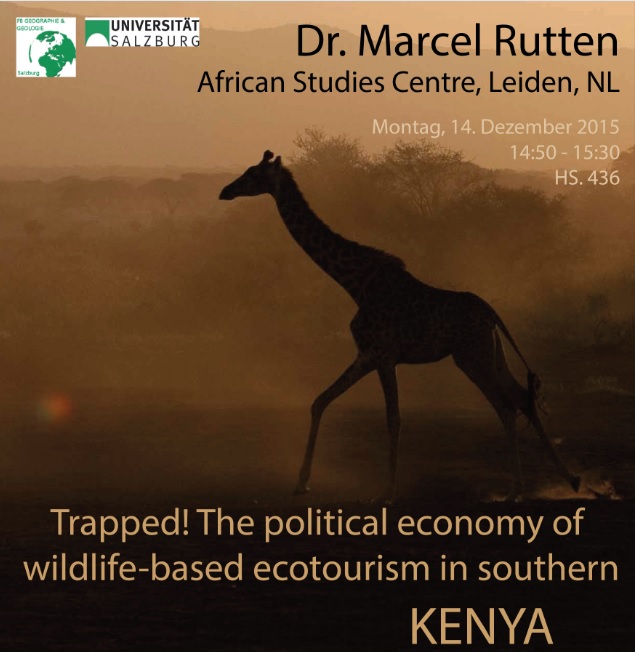Trapped! The Political Economy of Wildlife-based Ecotourism in Kenya
Africa has witnessed a boom in community-based tourism enterprises since the early 1990s. These private community partnerships in wildlife-based tourism have emerged in the wake of the realization that the future of national parks depends upon continuous access of game to neighboring dispersal areas. As a result, the role of local communities has obtained a more pronounced position.
Community-based conservation would, according to the Kenya Wildlife Service (KWS), change the top-down nature-conservation policy by emphasizing the position of those people who bear the costs. These ideas were implemented in the “Parks beyond Parks” approach since the mid-1990s. The idea of channeling some of the financial benefits gained from wildlife-based tourism in the direction of local communities is laudable. This concept was to bring about a win-win situation for both man and game, although some speak of it as being at best a “win/lose less wildlife”.
Support for the idea was confirmed by the Food and Agriculture Organization (FAO) with the African Wildlife Foundation (AWF), and the World Bank. They propagate so called Conservation-Based Ventures (CBVs) to (pastoral) communities in Eastern Africa who live next to wildlife endowed areas. This position calls for a thorough analysis of community-based tourism projects initiated in the Maasai area over the last 15 years. Results from some of these projects (Kimana, Selengei and Shompole) will be presented giving a detailed background to the origin and development of and the opinion of the local community towards these initiatives.
Dr. Marcel Rutten is a senior researcher at the African Studies Centre in Leiden, NL. His research activities concentrate on natural resource management, notably of land and water, in (semi-)arid Africa. In addition, his interest is directed toward (eco)tourism and Kenyan politics. Currently three research programmes are being carried out: conflicts over land; famine and drought coping strategies; and sustainable development of low-cost water sources (shallow wells).
The lecture will take place at the Faculty of Natural Sciences, Hellbrunnerstr. 34, HS 436, 3rd Floor.





